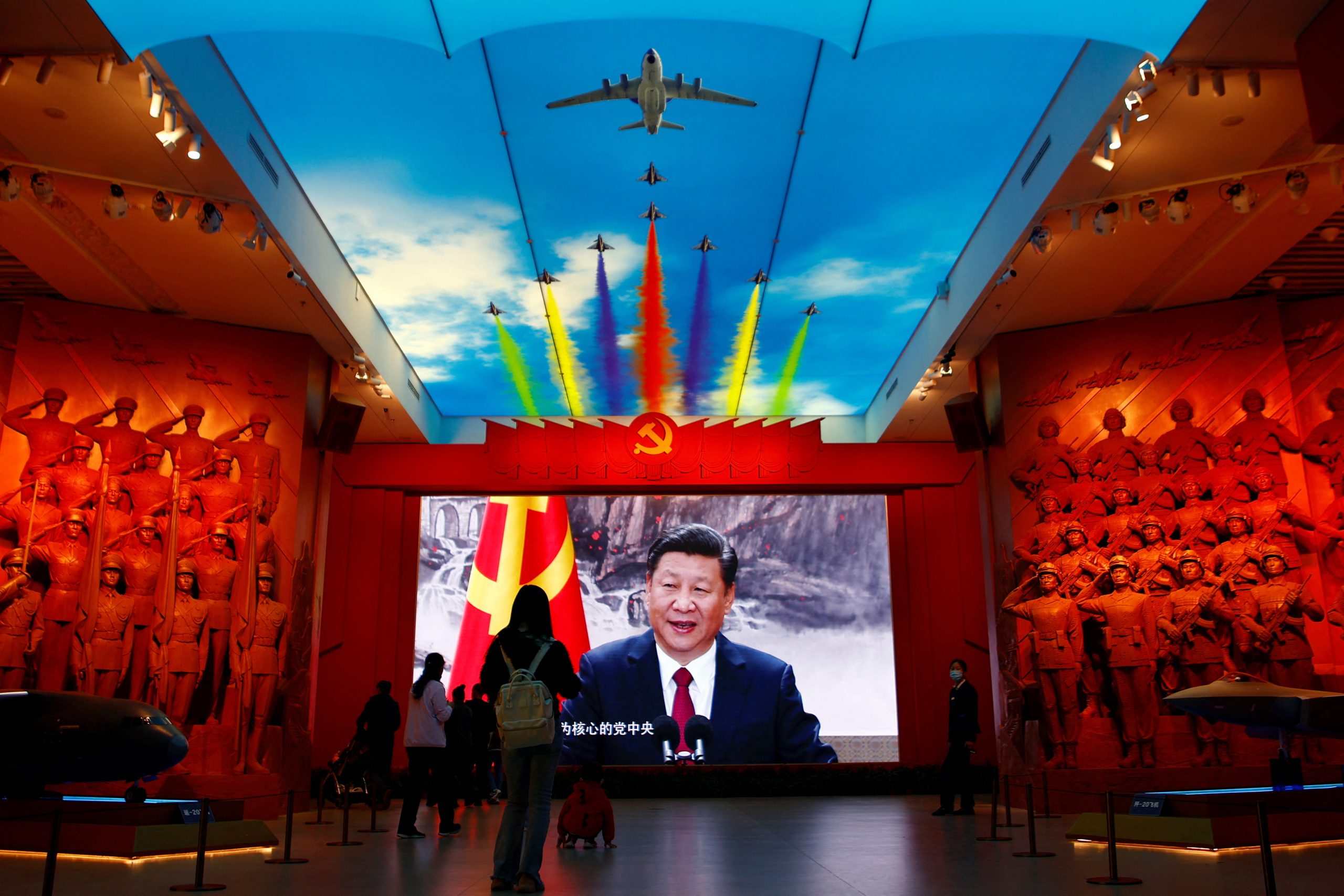
Lauren C. Moye, FISM News
[elfsight_social_share_buttons id=”1″]
The commander of U.S. Strategic Command, whose mission is to deter strategic attacks and to coordinate forces to ensure the security of the nation and allies, has warned that the U.S. has a “near-term problem” with waning ability to deter China.
Navy Admiral Charles A. Richard, the commander of Stratcom, warned that China is out-competing the U.S. in weapons development. That means the U.S. may be losing its ability to deter the communist superpower from aggressive actions.
“As I assess our level of deterrence against China, the ship is slowly sinking,” Richard said while speaking at the Naval Submarine League’s 2022 Annual Symposium & Industry Update on Nov. 2. “It is sinking slowly, but it is sinking, as fundamentally they are putting capability in the field faster than we are.”
Since nuclear weapons were first developed, the U.S. has always held the advantage and has dominated the world in military power and weaponry. Though China first acquired nuclear weapons in 1964, it didn’t seek to amass a large stockpile. Instead, Beijing kept a minimum nuclear posture.
But that’s all changing.
In 2021, news broke that China had begun a rapid nuclear expansion with a U.S. Defense Department’s military power report. According to the report, China has plans to amass 700 nuclear warheads by 2027 and 1,000 by 2030.
For now, the U.S. has a greater quantity with 3,750 warheads stockpiled according to an October 2021 State Department release. That doesn’t mean the U.S. shouldn’t be concerned by Beijing’s nuclear weapon production, however.
“With a significantly expanded nuclear arsenal, China will be freer to coerce or constrain U.S. options in a crisis or use nuclear threats to compel the United States to back down in a conflict,” Heritage Foundations’ Patty-Jane Geller wrote recently in an extensive review this risk poses to U.S. security.
China also is ahead of the U.S. in terms of hypersonic missile development. On July 27, 2021, they successfully tested a missile that traveled at five times the speed of sound and traveled around the world before striking its target in China. For comparison, the U.S. testing of a hypersonic missile failed on Oct. 22, 2021. However, the U.S. did successfully test a pair of Lockheed hypersonic missiles in July.
It’s this massive growth that placed China for the first time in the U.S. Nuclear Posture Review, of which the declassified version was released last week.
Russia and China are both “nuclear-armed competitors” that need to be taken into account “whether it’s from a deterrence perspective or from an arms control perspective,” said Richard C. Johnson, the deputy assistant secretary of defense for nuclear policies, about the newest strategy guidebook.
Richard stated that he doesn’t think a simple deterrence is enough, and that the U.S. can no longer rely on historic military dominance.
“As those curves keep going, it isn’t going to matter how good our [operating plan] is or how good our commanders are, or how good our forces are — we’re not going to have enough of them. And that is a very near-term problem,” the Stratcom Commander said, assessing China’s capabilities compared to the U.S.
According to Richard, the only actual area in which the U.S. has any advantage is with undersea capabilities.
Additionally, the problems plaguing U.S. military development mean the military will not be “in a good position to maintain strategic deterrence and national defense” unless development speeds improve.
Accordingly, the Russia and Ukraine war is the “warmup” for a much bigger test.
“The big one is coming. And it isn’t going to be very long before we’re going to get tested in ways that we haven’t been tested [in] a long time,” Richard said.
His warning is reminiscent of Pentagon spokesperson John Kirby, who said on Nov. 5, 2021, “Our number-one pacing challenge is the People’s Republican of China.”
The warnings of China’s rise in military strength come amidst their increased threat to Taiwan’s independence.
On Friday, the G7, the world’s wealthiest countries, warned China to abstain from “threats, coercion, intimidation, or the use of force” after the nation staged war games near Taiwan earlier this year following U.S. House Speaker Nancy Pelosi’s visit to the island.
China claims Taiwan as its own territory, although the island is self-governed. On Oct. 15, China said it reserves the right to use force against the island to bring it back under Beijing’s full control.
